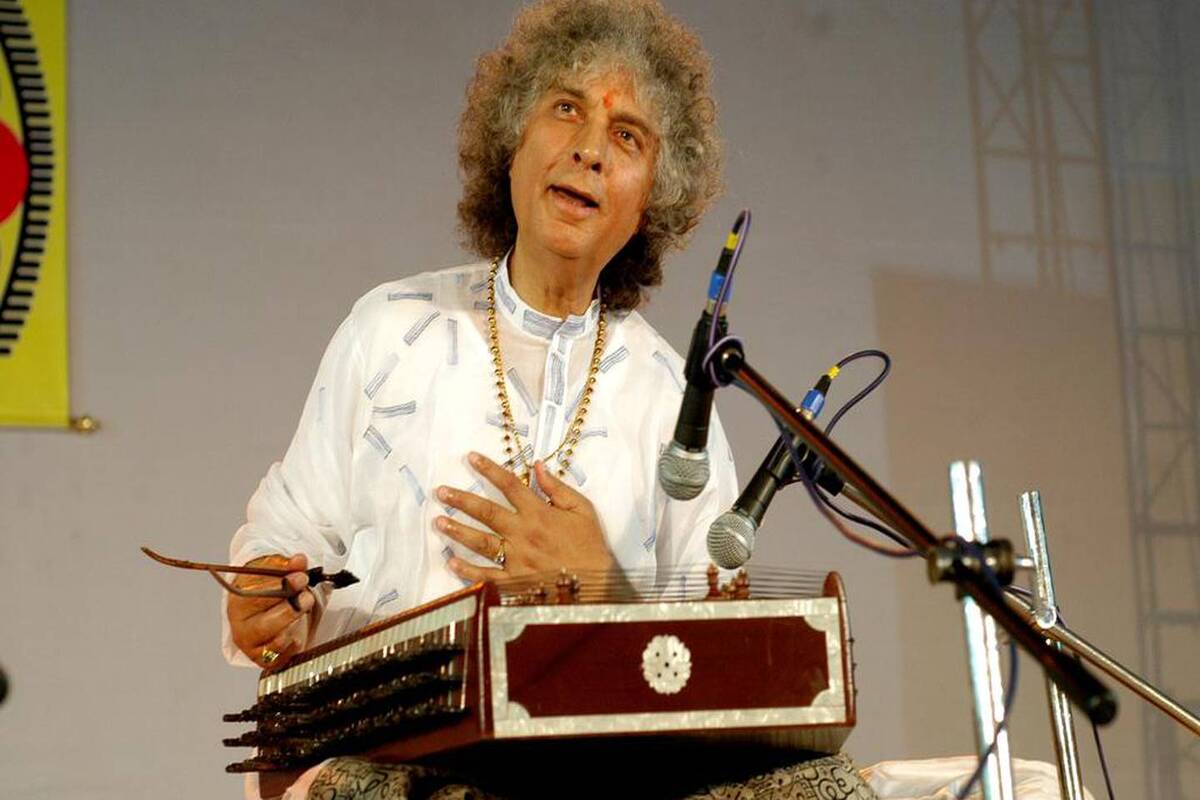The santoor is silent now
Musician Abhay Sopori hopes that the stature achieved by the Santoor remains intact and the coming generations continue to contribute towards its depth and popularity like Pt. Shiv Kumar Sharma.
Shivkumar Sharma was born on 13th January 1938, in Jammu, British India (present-day Jammu). He was introduced to the Santoor by his father and teacher, Pandit Uma Dutt Sharma.

Pandit Shivkumar Sharma
Pandit Shivkumar Sharma was an Indian classical musician and a renowned ‘Santoor’ player. Born to a trained vocalist and tabla player, he was destined to become a classical musician from an early age. His father recognized the `potential in the folk instrument ‘Santoor’ and encouraged him to learn to play it. Shivkumar Sharma became famous because of his improvisations with Santoor and the way he revolutionized it as one of the most riveting classical instruments. He is accredited for making the Santoor a popular classical instrument. He introduced the new chromatic arrangement of notes and increased the range to cover the full three octaves. He also improvised a new technique of playing with which he could sustain notes and maintain sound continuity. He is the sole musician to have brought Santoor at par with other classical instruments and established it across the globe with his sheer brilliance and conviction.
Childhood & Early Life
Shivkumar Sharma was born on 13th January 1938, in Jammu, British India (present-day Jammu). He was introduced to the Santoor by his father and teacher, Pandit Uma Dutt Sharma.
Advertisement
He was a renowned player of the instrument and also a vocalist and also a disciple of Pandit Bade Ramdasji of Banaras.
Shivkumar Sharma learnt tabla and singing before dedicating himself to learning the Santoor extensively.
The Santoor was known as the Shata-Tantri Veena in earlier days. It was used to accompany a particular type of singing known as Sufiana Mausiqi. Pandit Uma Dutt Sharma gave the responsibility of taking the Santoor on the world stage to his son, Shivkumar, after extensive research on its possibilities.
The Greatest Santoor Player Shivkumar Sharma was successful in giving the Santoor the position of a popular classical instrument. Shivkumar Sharma modified the folk instrument in order to make it more suitable for classical music. He increased its range to full three octaves and also created a technique for smoother gliding between music notes in order to imitate human voice quality.
He also created a new way of playing it so that the notes and sound continuity could be maintained for a long time and collaborated with many musicians, including Zakir Hussain and Hariprasad Chaurasiya.
He formed a music team (Shiv-Hari) with the noted flutist Hariprasad Chaurasia and composed music for Hindi films Darr, Silsila, Lamhe, etc.
Some of his famous albums are Call of the Valley, Sampradaya, Elements: Water, Music of the Mountains, Megh Malhar, etc. His son, Rahul, is also a famous Santoor player.
Awards & Accolades
For his remarkable achievements in the field of music, Pandit Shivkumar Sharma was honoured with many prestigious awards, including the Padmashree, the Padma Vibhushan, the Sangeet Natak Academy Award, an honorary doctorate from the University of Jammu, the Ustad Hafiz Ali Khan Award, the Maharashtra Gaurav Puraskar, etc.
He was also honoured with an honorary citizenship in the city of Baltimore, USA.
Advertisement